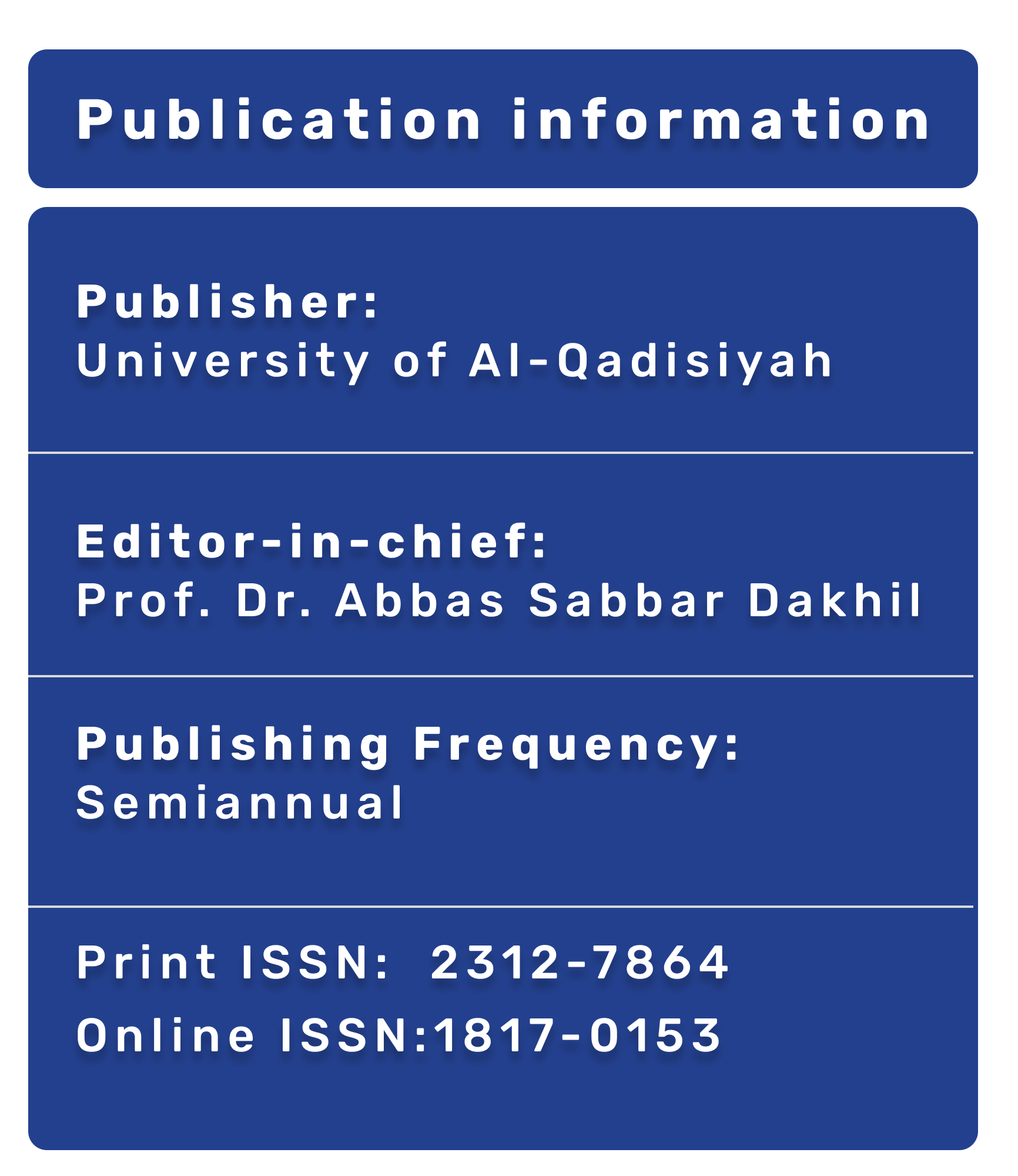Gene and Alleles of TYK2 (rs11085727) and TYK2 (rs34536443) polymorphisms in COVID-19 Patients using ARMS-PCR.
DOI:
https://doi.org/10.28922/qmj.v21i1.958الكلمات المفتاحية:
TYK2 (rs34536443), TYK2 (rs11085727), COVID-19, Polymorphism, ARMS-PCR.الملخص
The clinical presentation of COVID-19 varies greatly from case to another, with host characteristics playing a pivotal role. The immune system is a pivotal function in establishing the course of SARS-COV-2 infection. Severe instances of COVID-19 and the resulting death are caused less by the virus itself than by the destructive unrestrained immune response. Among the host determinants for poor disease prognosis is probably genetic vulnerability to dysregulated immune response. The objective of this work is to examine some of the host genetic variables that are being studied in relation to the severity of COVID-19. The complex relationship between autoimmunity and the pathophysiology of COVID-19 was examined. Patients with COVID-19 were recruited from AL-Dewaniyah Teaching Hospital and AL-Hussain Teaching Hospital in Karbala city. All patients had been diagnosed with the virus using real-time polymerase chain reaction. A total of 105 blood samples (35 from the mild group, 35 from the severe group, and 35 from the controlled group) were obtained in EDTA tubes. Orderly to investigate the correlation between the progression of disease and variations in specific regions of host DNA (TYK2), DNA extraction, and genetic analysis (ARMS- PCR). The findings of the ARMS-PCR assay showed insignificant difference between severity of COVID-19 in the present study. Genotype distributions were shown both TYK2 (rs11085727) and TYK2 (rs34536443) polymorphisms. There was insignificant difference between the observed and expected distribution of healthy by TYK2 (rs11085727) and TYK2 (rs34536443) genotypes. According to the results of ARMS-PCR, there was insignificant difference between the severity and its mildness in the current study patients.
المراجع
Harapan, H., et al., Coronavirus disease 2019 (COVID-19): A literature review, Journal of infection and public health, 13(5), 2020, 667-673.
Klaif, S.F., A.H. Aubaid, and M.K. Mohammed, Analysis of SARS-COV2 Omicron strain in spike protein Iraqi isolates.
Nath, D., et al., Factors affecting COVID-19 outbreaks across the globe: Role of extreme climate change, Sustainability, 13(6), 2021, 3029.
Tripathi, R., et al., Awareness and preparedness of COVID-19 outbreak among healthcare workers and other residents of South-West Saudi Arabia: a cross-sectional survey, Frontiers in public health, 8, 2020, 482.
Han, Y., B. Jiang, and R. Guo, Factors affecting public adoption of COVID-19 prevention and treatment information during an infodemic: Cross-sectional survey study, Journal of Medical Internet Research, 23(3), 2021, e23097.
Klaif, S.F., A.H. Aubaid, and M.K. Mohammed, Sequencing of Delta and Kappa Strain of SARS-CoV2 Spike Gene Among Iraqi Isolates.
World Health Organization. Coronavirus disease 2019 (COVID-19). Situation Report – 70. 2020; Available from: https://www.who.int/docs/default-source/coronaviruse/situation-reports/20200330-sitrep-70-covid-19.pdf?sfvrsn=7e0fe3f8_2.
van Blokland, I.V., et al., Using symptom-based case predictions to identify host genetic factors that contribute to COVID-19 susceptibility, Plos one, 16(8), 2021, e0255402.
Nhung, V.P., et al., Host genetic risk factors associated with COVID-19 susceptibility and severity in Vietnamese, Genes, 13(10), 2022, 1884.
Abdelhafez, M., et al., Association of IFNAR2 rs2236757 and OAS3 rs10735079 polymorphisms with susceptibility to COVID-19 infection and severity, medRxiv, 2022, 2022.09. 27.22280425.
Dieter, C., et al., Polymorphisms in ACE1, TMPRSS2, IFIH1, IFNAR2, and TYK2 genes are associated with worse clinical outcomes in COVID-19, Genes, 14(1), 2022, 29.
Jalkanen, J., et al., Polymorphism in interferon alpha/beta receptor contributes to glucocorticoid response and outcome of ARDS and COVID-19, Critical Care, 27(1), 2023, 1-13.
van der Made, C.I., et al., Clinical implications of host genetic variation and susceptibility to severe or critical COVID-19, Genome Medicine, 14(1), 2022, 1-22.
Dieter, C., et al., Genetic polymorphisms associated with susceptibility to COVID-19 disease and severity: A systematic review and meta-analysis, PLoS One, 17(7), 2022, e0270627.
Akter, S., et al., Deleterious single nucleotide polymorphisms (SNPs) of human IFNAR2 gene facilitate COVID-19 severity in patients: a comprehensive in silico approach, Journal of Biomolecular Structure and Dynamics, 40(21), 2022, 11173-11189.
Files, D.C., et al., Rationale of using the dual chemokine receptor CCR2/CCR5 inhibitor cenicriviroc for the treatment of COVID-19, PLoS pathogens, 18(6), 2022, e1010547.








